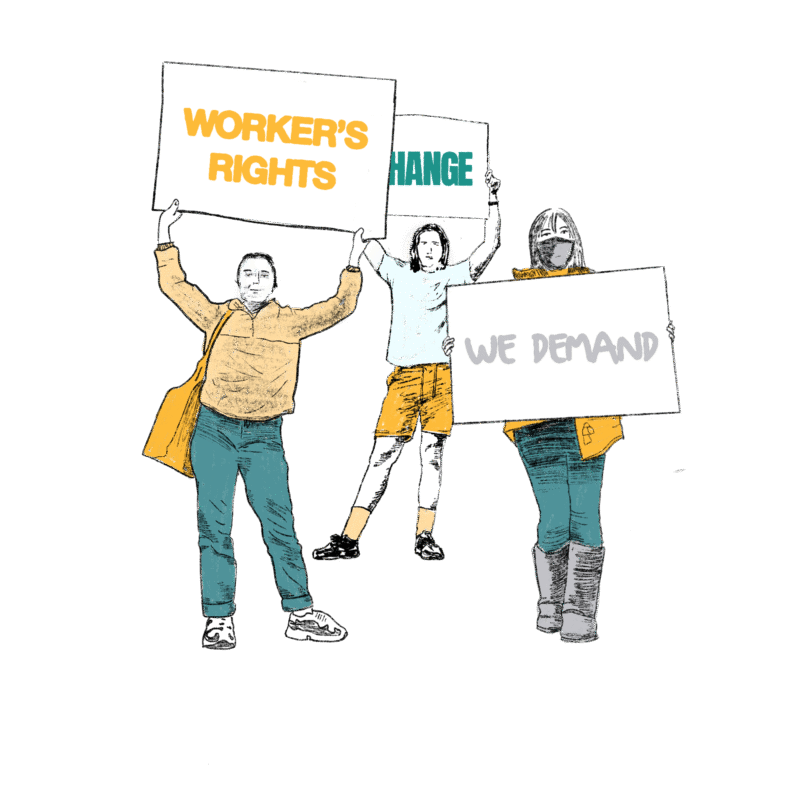
FLEX Training Programme: What do trainees think?
FLEX has been proud to offer training on understanding labour exploitation throughout our 10+ years of operation. Since 2020, with funding from City Bridge Foundation, London’s biggest independent charity funder, we have been able to offer bespoke training workshops to local frontline organisations whose service users may face precarity and heightened risk of exploitation.
We asked two organisations trained in 2024 and 2025 to share their experience with FLEX’s workshops.
Tell us about the groups your charity works with, and the support it provides.
Sydney (Project 17): Project 17 works with families with No Recourse to Public Funds (NRPF) who are facing homelessness and destitution, to help them access statutory support under Section 17 Children Act 1989.
Project 17 works towards ensuring that local authorities comply with the duties imposed on them by Section 17, to safeguard and promote the welfare of children in need. Section 17 enables local councils to provide accommodation and financial support to families. This duty exists even if the family has no right to work, no access to welfare benefits and social housing and no leave to remain in the UK.
Hayley (Young Roots): Young Roots works with young peopled aged 11-25, who have claimed asylum or who have refugee status. We do youth groups, we do 1-1 casework, and we also do trips, residentials, and we also do some policy & campaigning work. We work across 3 sites, Kings Cross, Brent & Croydon.
We also try to give young people opportunities to get involved in the work we do; we have young people who volunteer with Young Roots, and get involved in policy and campaigning work as well.
What is a common example of labour exploitation amongst your service users?
Sydney (Project 17): Examples include working cash in hand for below minimum wage, which is very common (especially in cleaning, etc). Working (e.g. doing childcare) in exchange for accommodation rather than wages. Being promised payment that never comes/salaries withheld. And work terminated unlawfully.
Employers can also not offer shifts, saying there is no work available, all after taking payment (for training fees, admin fees, visa-related costs etc); this is especially common for people on skilled worker visas. This also happens when attempting to return to work after having a baby.
We have seen a significant increase in the number of people approaching our service on skilled worker visas. Almost all of our clients with these visas are working in health and social care. They often experience destitution and poverty due to their working conditions.
Hayley (Young Roots): Young people are working cash in hand, working long hours, and not receiving the amount of money they should be receiving for the amount of hours they are working. This all in possibly unsafe working conditions.
Lots of the young people we work with have responsibility for other family members living back home. This can impact them further because they are worried about that responsibility they have.
How has the FLEX training helped you support people at risk of labour exploitation?
Sydney (Project 17): That there is little adequate structural support for migrant workers who are caught in the intersection of the hostile environment and the labour market and are vulnerable to exploitation. This makes makes unions and local communities even more valuable sources of support.
The FLEX training gave us a greater understanding of the frameworks around labour exploitation, and the avenues for support that are available. The training also provided robust signposting for care workers and employment rights, which has been very useful.
Hayley (Young Roots): The FLEX training has given our staff a good basis of understanding around what exploitation is and how to recognise that. It gave them the opportunity to discuss case studies and practical scenarios of what they would do in that situation.
It has put the topic of labour exploitation in people’s thinking as well, which is also useful.
Having that relationship with FLEX, and thinking about next steps, gives us better links to possible resources in the future.
In the coming year, what are some goals you have at your organisation?
Sydney (Project 17): Project 17 is looking at:
- Expanding the capacity of the advice service by employing an advice support officer to focus on destitution support.
- Gearing up to expand our area of specialism to include adults with NRPF who have care needs and need support under the Care Act 2014.
- Reviewing our organisational mission and vision.
- Building alliances with groups that are politically aligned focus on social justice beyond migration.
Hayley (Young Roots): We are just trying to give young people that access our services more opportunities to volunteer within different departments at Young Roots. We are in the middle of service delivery review, to see if the way we’re set up is the best way possible, so we’re looking at resources, capacity, and how we best manage our staffing resource, as well as ensuring our key partnerships, and looking to provide immigration advisors and therapeutic support.
FLEX believes building awareness on risks, prevention, rights, and services available is a key tool toward our mission of ending labour exploitation. We continue to work in partnership with frontline organisations across the UK to strengthen our own awareness and increase knowledge sharing across sectors. More information about FLEX’s training offer can be found here.
